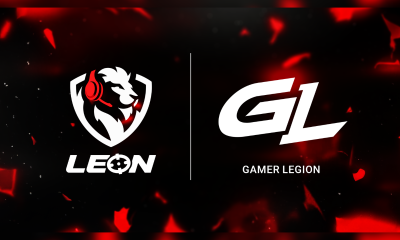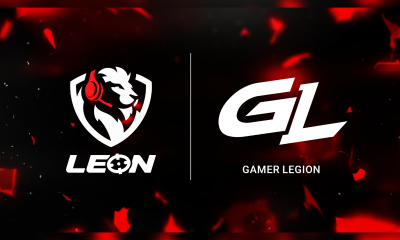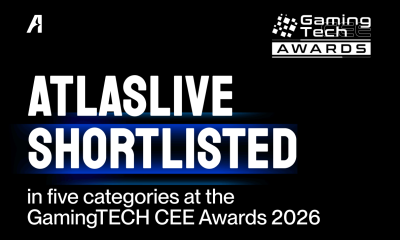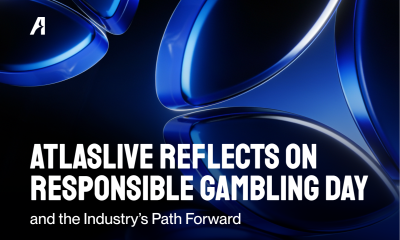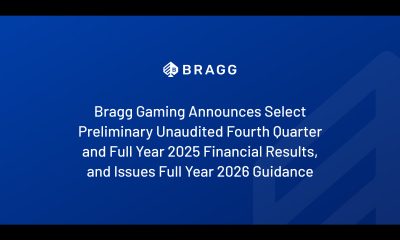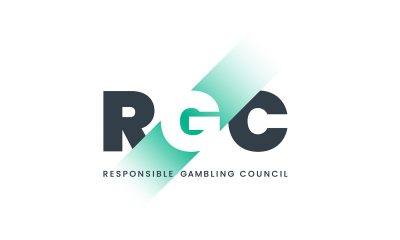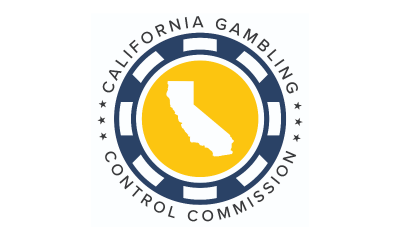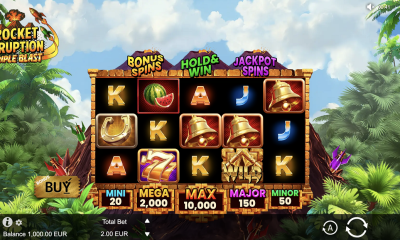Latest News
Gambling News Roundup: New Regulations, Big Wins, and More

Millions of people enjoy gambling, whether it is a spot on a horse race or the football results. But many of them are at risk of addiction and must be better protected. That’s why the government has announced plans to update gambling rules for the digital age. These include extra powers for the Gambling Commission, curbs on bonus offers, and affordability checks for online slots.
Legalization of sports betting
The legalization of sports betting in the United States has brought a host of new opportunities for gamblers. People can now place bets on a wide variety of games, and some have even made huge profits from their wagers. This has boosted the economy and helped casinos make money. It is expected to continue growing over the next few years.
Several states have legalized sports betting, and many others are attempting to do so. Previously, most people had to travel to Nevada to place bets on their favorite teams and players. But now, sports betting is available in most states and can be enjoyed by anyone with an internet connection.
In addition to boosting the economy, legalized sports gambling is also helping state governments collect revenue. Over the past two years, sports betting taxes have generated over $3 billion in revenues for local and state governments and over $570 million for federal authorities. Some states are putting all of the money they receive from sports betting into general funds, while others are using it to fund programs such as education and law enforcement.
As the demand for legal sports betting continues to grow, many lawmakers are working on legislation to regulate the industry. Some proposals call for a percentage of the revenue to go towards anti-corruption measures in professional sports leagues, while other states are creating categories of licenses with different fees and requirements. In Illinois, for example, the new laws allow sports books to pay a “master sports wagering license” fee of $10 million to be licensed, and they must use official league data to set odds.
Other states, such as Montana and Nebraska, have ballot initiatives to legalize sports betting. In Nebraska, Proposition 27 will ask voters to amend the state constitution and allow regulated sports wagering. The measure has received support from the governor but will require 2/3 of the legislature’s approval to be placed on the ballot.
In Florida, the legislature approved sports wagering via a tribal-state compact with the Seminole Tribe in May 2021. Once the federal Department of Interior approves the compact, retail and mobile sports betting could launch in late 2021.
Legalization of medical marijuana
In the United States, medical marijuana is legal on a state level in 29 states and Washington, DC. However, you can learn more about the same from Focus Gaming News. The Trump administration has signaled a tougher stance on drug enforcement, but limited Department of Justice resources and large marijuana tax revenues in some states may discourage federal interference. Physicians are able to prescribe cannabis to treat nausea and vomiting from cancer chemotherapy and wasting (severe weight loss) associated with AIDS, as well as spasticity from multiple sclerosis. The FDA has also approved synthetic marijuana-derived compounds such as Dronabinol and Cesamet, as well as the oromucosal spray Sativex for multiple sclerosis and cancer pain.
Legalization of online gambling
The legalization of online gambling in the United States is a complex issue. While the activity is largely legal in most areas, it is still subject to state and federal laws that restrict or regulate different aspects of the industry. For example, states have passed laws that allow sports betting while limiting the types of online gambling platforms that can accept wagers. Some states have even banned online gambling entirely. The most recent development in the US has been an attempt to circumvent these state-by-state patchworks by legalizing online gaming at the federal level.
Initially, the movement to legalize online gambling in the US was focused on sports betting. The 2018 Supreme Court decision overturned PASPA, allowing individual states to legalize sports betting in their jurisdictions. In the wake of this ruling, several states enacted legislation to legalize online betting on various sporting events. The most popular sports to bet on are football, basketball, and baseball. However, there are other popular games that can be wagered on as well, including horse racing and video games.
Online casinos and poker rooms are also becoming more accessible in the US. Nevada, New Jersey, and Delaware were among the first states to introduce legal online casino games and poker sites. Since then, Pennsylvania, West Virginia, and Michigan have joined the party, and other states are considering legalization as well.
While some people may enjoy online gambling without any problem, others can be harmed by its consequences. These problems range from financial loss to addiction and even death. In the worst cases, gambling harm and addiction can lead to suicide. As a result, the industry has become more vigilant in its efforts to protect vulnerable players.
In 2022, California will vote on two competing proposals for the legalization of online sports betting. One is backed by FanDuel and DraftKings while the other is supported by California tribes. Both initiatives face an uphill battle. The state has a large Mormon population and many residents oppose the initiative due to religious beliefs. The other major holdout in the US is Hawaii, which has a similar climate and a lack of interest in expanding its gambling regulations.
Legalization of Video Poker
Amid the excitement over the Supreme Court’s decision to legalize sports betting, many states are considering new regulations that could further expand gambling. One example is a bill that would make it easier for gambling firms to monitor the habits of their customers and take steps to intervene when they exhibit problem behaviors. This bill would also allow casinos to sell betting apps and offer a range of responsible gambling products.
The state of South Carolina has a complicated relationship with gambling. Its laws ban most forms of gambling, but video poker is in a gray area because it is not specifically mentioned in the law. It was only able to survive in the state by hiding in a 1986 legislative favor. A tiny amendment in the back of a giant budget bill erased two words in a state statute, allowing video poker players to win jackpots. The state has never formally banned video poker, but it has used suits and lobbying to stymie efforts to pass a ban.
Some states have a better relationship with gambling than others, but even the best-behaved states sometimes struggle to enforce their laws. For instance, the state of Kentucky took a hard line against online poker in recent years and attempted to seize 140 gambling domains. The effort was ultimately thwarted by the court, but the state still maintains a harsh anti-online poker policy. The Kentucky Supreme Court might eventually review the case, but it is unlikely that the state will legalize online poker anytime soon.
Another state with a good relationship with gambling is West Virginia, which has launched regulated sports betting sites. In 2023, the state is expected to roll out a broader set of iGaming offerings, including online slots and table games. It is likely that the Mohegan and Mashantucket Pequot tribes will launch these sites in the state, though they may face some challenges.
The state of California has 78 land-based casinos and 60 poker clubs. It has also dozens of horse tracks, OTBs, casino cruises, and bingo halls. But it has never passed a legalized version of online poker, partly because of the industry’s unpopular image. A bill that would legalize a statewide poker network was defeated in February, but lawmakers are looking at other ways to boost gaming revenues. They are considering expanding land-based casino machines, allowing players to use their mobile devices, and adding a gambling ombudsman to help resolve disputes between punters and companies.
AI-powered betting assistant
Why the next billion dollar betting giant will look like a messaging app

Josh Swerdlow at ChatBet, says that as legacy sportsbooks struggle with “search and click fatigue, the next industry titan will win by owning the conversational intent layer where billions of users already live
If you look at any online sportsbook or app, the betting UX legacy debt is clear to see, especially when you compare it with the “invisible and seamless nature of modern tech. In contrast, betting UX is clunky and friction heavy.
This is because current betting interfaces are essentially digital versions of 1990s spreadsheets, with rows of odds and deep menus leading to “search and click” fatigue.
This creates a cognitive overload that only the power users are happy to contend with. These more hardcore bettors will tolerate grids, endless menu scrolling and complex bet types to get to the right wager, but it puts more casual punters in a state of analysis paralysis.
We are now moving from a world of “search and click” to “intent and fulfilment” and sportsbook operators must lean into this to ensure relevance and that they appeal to the widest possible audience.
For the average consumer, if they can book a holiday by chatting with AI, they expect to be able to place a bet on their favourite football team in the same way.
Messaging is the new browser:
Over the next decade, the “moat” for operators isn’t the odds they offer, it’s the layer that captures intent. Whoever owns the conversation will own the consumer. In short, the sportsbook becomes the back-end utility, while the messaging interface becomes the front of mind.
Crucially, this is not a “rip and replace” solution. It integrates seamlessly with existing APIs, allowing operators to modernize their UX overnight without rebuilding their entire tech stack.
Unlike clicks on a page, conversational data reveals exactly what the user wants. This creates a feedback loop that traditional trackers simply can’t match. This intent data gives operators a significant and strong advantage.
It’s not unreasonable to anticipate a multi-book future drive by another shift that sees a single messaging interface route intent to multiple liquidity providers or sportsbook brands. But that’s the future, what do operators need to understand and do right now?
From conversation to transaction:
Let me give a couple of examples that show conversational betting in motion and how it changes user behavior.
Traditional sportsbook UX is a multi-step hurdle race but conversational betting turns it into a sprint. Let’s use the example of a bettor who wants to place a £20 wager on Arsenal to win tonight.
This is the flow for a standard sportsbook.
Open the app. Log in. Search “Arsenal”. Select league. Find match. Click odds. Open bet slip. Enter stake. Confirm.
This takes 10-12 steps, plus additional typing time, so you’re looking at almost a minute to place a single bet.
This is the flow with conversational betting.
The user sends the following message, either as text or a voice note – “£20 on Arsenal to win tonight”. The AI does all the heavy lifting, with the bet set and confirmed in three to five seconds.
And this is just for a single bet. Imagine a same-game-parlay. While this is the highest-margin product for operators, it’s the most complex for bettors to construct, especially on mobile.
Traditionally, bettors scroll through 50+ toggles (corners, yellow cards, goal scorers, etc) trying to remember which players are even in the starting team.
But with conversational betting, the bettor acts as the director, rather than the architect.
Instead, they simply input “Give me a safe 3-leg parlay for the Manchester United game tonight focusing on goals scored”.
The AI will then compile the bet slip and even explain the rationale back to the bettor in its response, all pretty much in real-time.
This is especially important for operators looking to tap into the meteoric rise of prediction markets. If an event can be priced, a chat interface is the most natural way to trade on it, especially for the mass market.
The theory in motion:
ChatBet stands as proof of just how effective conversation betting is at crushing the funnel for acquisition and driving engagement and retention.
Our solution acts as an agentic bookie – a system that doesn’t just answer questions, but independently executes complex workflows across wallets, odds and APIs – living inside WhatsApp, Telegram and even the operator’s betting app.
To be clear, ChatBet functions strictly as the UI and orchestration layer; all critical regulated functions, including KYC, wallet management, ticketing, responsible gambling (RG) and reporting, remain securely inside the operator’s existing licensed stack.
These are just some of the headline stats we have generated with our initial run of operators launches.
Funnel velocity: Our initial launches demonstrate that the ‘time-to-bet’ for complex markets like same-game parlays has dropped by 82%, falling from a 90-second manual ‘build’ to a 4-second conversational ‘request’.
Conversion lift: By removing analysis paralysis, we have seen a 28% increase in bet-slip completion rates compared to traditional mobile web interfaces.
Retention advantage: Users engaging via messaging platforms like WhatsApp show a 35% higher day-30 retention rate than those using standalone betting apps, largely due to the ‘always-on’ nature of the interface.
Operational efficiency: The ‘agentic’ layer successfully interprets and executes 94% of natural language intents without human intervention, effectively providing every user with a private, 24/7 VIP bookie.
Why the intent layer is the ultimate moat:
In the legacy world, an operator’s only defense is their marketing budget. In the conversational world, the defense is data gravity.
Every chat interaction improves the AI’s understanding of local slang, fan sentiment and individual betting patterns. As the system scales, the ‘intent layer’ becomes an insurmountable moat – a competitor can clone a grid of odds, but they cannot easily clone a refined, high-context relationship with millions of users.
For the first time, betting has a ‘network effect’ where the more people who bet via chat, the smarter, and more indispensable, the interface becomes.
The billion dollar outcome:
The potential of conversational betting, and pioneering tech companies such as ChatBet, present a venture-scale opportunity. These are just some of the reasons why:
Viral distribution – piggybacking on the billions of users on WhatsApp/Telegram solves the customer acquisition cost crisis in betting. There’s no more fighting for app store space, with operators acquiring and retaining users directly though chat channels.
The data network effect – every conversation makes the AI smarter, so the more people that use the intent layer, the more defensible the platform becomes.
Regulatory alignment – there is a clear shift toward responsible gambling, and chat-based betting allows for lower-friction, smaller-stake engagement and “nudge” technology for safer play, aligning perfectly with the regulatory climate in 2026 and beyond.
The next billion-dollar betting giant won’t just be a better website, it will be the messaging-native layer that turns every opinion in a chat into a priced, compliant transaction.
The post Why the next billion dollar betting giant will look like a messaging app appeared first on Eastern European Gaming | Global iGaming & Tech Intelligence Hub.
CertiIQ
CertiIQ Launched by Deion Williams and Julian Borg-Barthet to Streamline iGaming Compliance

CertiIQ , a RegTech platform created to offer a unified source of truth for certification, audit, and regulatory compliance, has announced its entry into the iGaming sector today.
, a RegTech platform created to offer a unified source of truth for certification, audit, and regulatory compliance, has announced its entry into the iGaming sector today.
CertiIQ consolidates test reports, monitors certification and audit expiration dates, and facilitates secure collaboration among stakeholders. It also provides live RTP monitoring, asset integrity verification through API, workflows for change management, and comparative regulatory gap analysis for businesses entering new markets.
consolidates test reports, monitors certification and audit expiration dates, and facilitates secure collaboration among stakeholders. It also provides live RTP monitoring, asset integrity verification through API, workflows for change management, and comparative regulatory gap analysis for businesses entering new markets.
It has also been designed to guarantee that reports are automatically incorporated into client workspaces, eliminating manual transfers and minimizing operational friction, and has been created to facilitate workflows with prominent labs such as GLI, BMM, RiskCherry, Gaming Associates, and eCOGRA.
Leading this innovative platform are seasoned professionals Deion Williams and Julian Borg-Barthet, who collectively bring over 30 years of combined expertise from prominent testing laboratories, operators, and suppliers.
“Building something that we wish we had when we first got started, is a proud moment for us” said Julian Borg-Barthet, Co-Founder of CertiIQ . “The enthusiastic feedback we’ve received so far has been a testament that we’ve been on the right track.”
. “The enthusiastic feedback we’ve received so far has been a testament that we’ve been on the right track.”
Launching in early access this March, CertiIQ is welcoming its initial customers while progressing toward a live release and is eager to partner with early adopters as regulatory challenges increase across all regulated iGaming markets worldwide.
is welcoming its initial customers while progressing toward a live release and is eager to partner with early adopters as regulatory challenges increase across all regulated iGaming markets worldwide.
The post CertiIQ Launched by Deion Williams and Julian Borg-Barthet to Streamline iGaming Compliance appeared first on Eastern European Gaming | Global iGaming & Tech Intelligence Hub.
Bet on Games
Bet on Games Premieres Ranch Robbery — Rugged, High-Octane Crash Experience
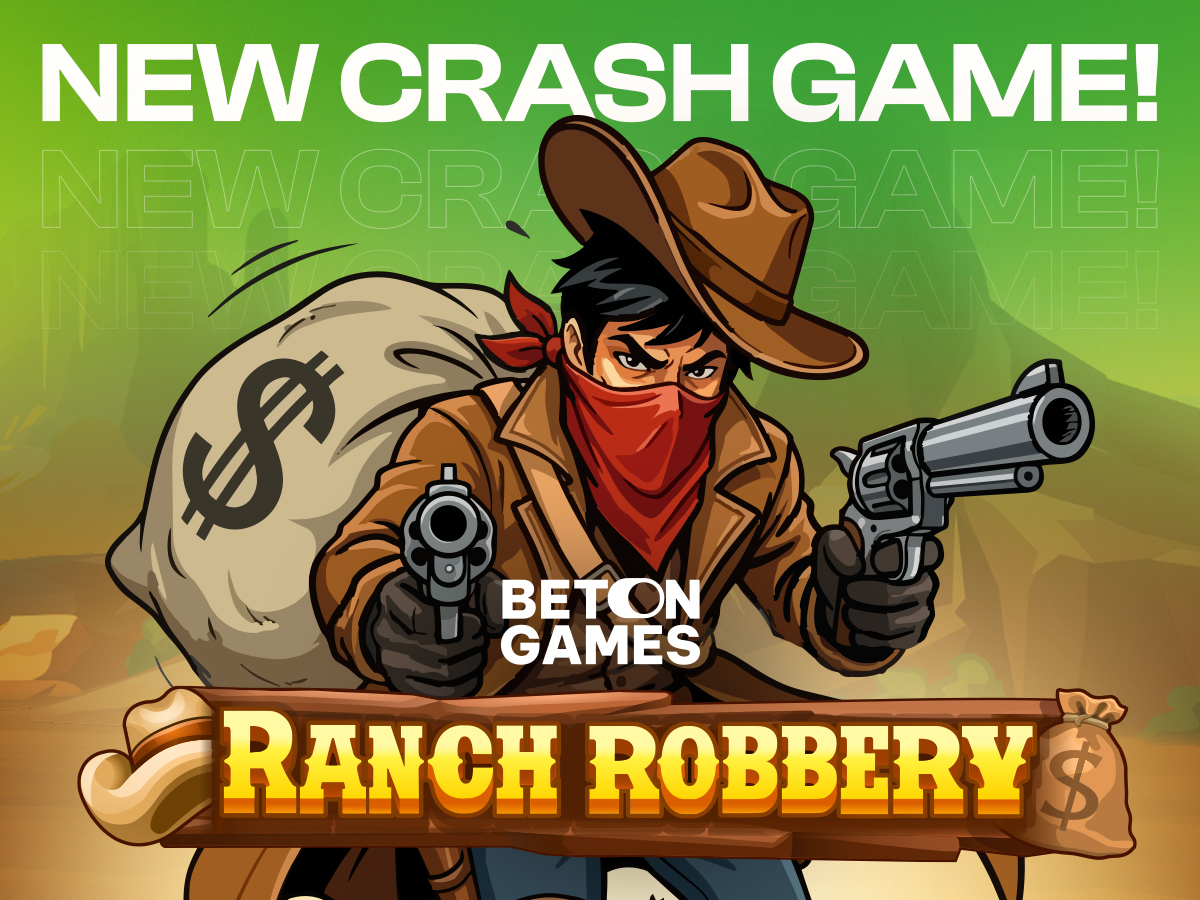
Bet on Games unveils Ranch Robbery, a fresh crash game that infuses the wild spirit of the Wild West into the rapidly expanding instant category. The launch enhances the brand’s crash lineup with an audacious thematic approach and performance-oriented features.
As a key segment within the BETCORE ecosystem, Bet on Games keeps growing its instant and crash portfolio, now surpassing 200+ titles ready for integration. With Ranch Robbery, the brand expands its crash offerings, merging established gameplay mechanics with a unique Western theme aimed at distinguishing itself in competitive environments and captivating action-oriented players.
About the Game
Ranch Robbery takes place in a uniquely designed frontier setting where tension escalates in real time. A cowboy dashes across the ranch as the multiplier rises dynamically. The more extended the run lasts, the greater the possible payout; however, if the escape concludes before cashing out, the wager is forfeited.
Every round lasts merely seconds, resulting in a quick decision-making cycle and continuous adrenaline.
The post Bet on Games Premieres Ranch Robbery — Rugged, High-Octane Crash Experience appeared first on Eastern European Gaming | Global iGaming & Tech Intelligence Hub.
-

 Central Europe7 days ago
Central Europe7 days agoPowering the Next Generation of Online Casinos: Inside DSTGAMING’s Scalable iGaming Ecosystem
-

 Adjusted EBITDA6 days ago
Adjusted EBITDA6 days agoBragg Gaming Announces Select Preliminary Unaudited Fourth Quarter and Full Year 2025 Financial Results, and Issues Full Year 2026 Guidance
-

 Alberta iGaming Corporation7 days ago
Alberta iGaming Corporation7 days agoAlberta iGaming Corporation Partners with Responsible Gambling Council
-

 Bagley-Keene Act6 days ago
Bagley-Keene Act6 days agoCalifornia Gambling Control Commission Issues Critical Guidance on Stakeholder Communications and Ex Parte Rules
-

 Habanero7 days ago
Habanero7 days agoRacing Royalty — Habanero’s High-Speed Hold-and-Ride Thrill
-

 iGaming5 days ago
iGaming5 days agoPRAGMATIC PLAY UNEARTHS PROGRESSIVE MULTIPLIERS IN ROLLING IN TREASURES
-

 BGaming7 days ago
BGaming7 days agoBrace for Impact — BGaming’s Rocket Eruption: Triple Blast
-

 Comatel4 days ago
Comatel4 days agoCOMATEL CELEBRARÁ UNA FIESTA PARA CIENTOS DE OPERADORES TRAS FINALIZAR EL PRIMER DÍA DE LA FERIA ESPAÑOLA, INTERAZAR



